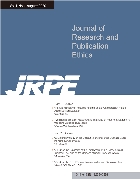 E-ISSN : 2733-7146
E-ISSN : 2733-7146
Abstract
Purpose: Focusing on Supreme Court precedents, we intend to establish criteria for judging research misconduct. Research design, data and methodology: In addition, I would like to propose the criteria for judging research misconduct by the KODISA, which applies the court's standards well in practice, and guidelines for preventing research misconduct. Research design, data and methodology: After classifying the case of research misconduct into six cases, the court's judgment and practical application will be reviewed. Results: First, research misconduct that has passed the disciplinary prescription can be punished. This is because the state of illegality continues to this day. Second, even if there were no punishment regulations at the time of research misconduct, it can be retroactively punished with the current punishment regulations. This is because research ethics is a universal and common standard and does not change. Third, if there is a fact that infringes on intellectual property rights, it is presumed unwritten intentions. Therefore, the act of taking and using the work of another person without permission or proper citation procedure, even if it is unintentional and for the public interest, is a research misconduct. Fourth, if there is an inappropriate citation notation, the intention of research misconduct is presumed. It is the judgment of the court that even if a quotation is marked, if it is incomplete, it is recognized as plagiarism. Fifth, if the author uses the work of another person without proper source indication, it is plagiarism even if the other person who owns the copyright agrees to it. The understanding or consent of some parties does not justify research misconduct in violation of public trust. Sixth, it is a research misconduct to create a new work without citations for one's previous work. In addition, even if there is a citation, if the subsequent writing is not original, it is a research misconduct. Conclusions: Academia should clarify the scope of research misconduct by referring to the Research Ethics Regulations of KODISA, and deal with research results that lack the value as creative works similar to those of research misconduct.
- keywords
- Research Misconduct, Court's Standards, Research Ethics, Plagiarism
- Downloaded
- Viewed
- 0KCI Citations
- 0WOS Citations













